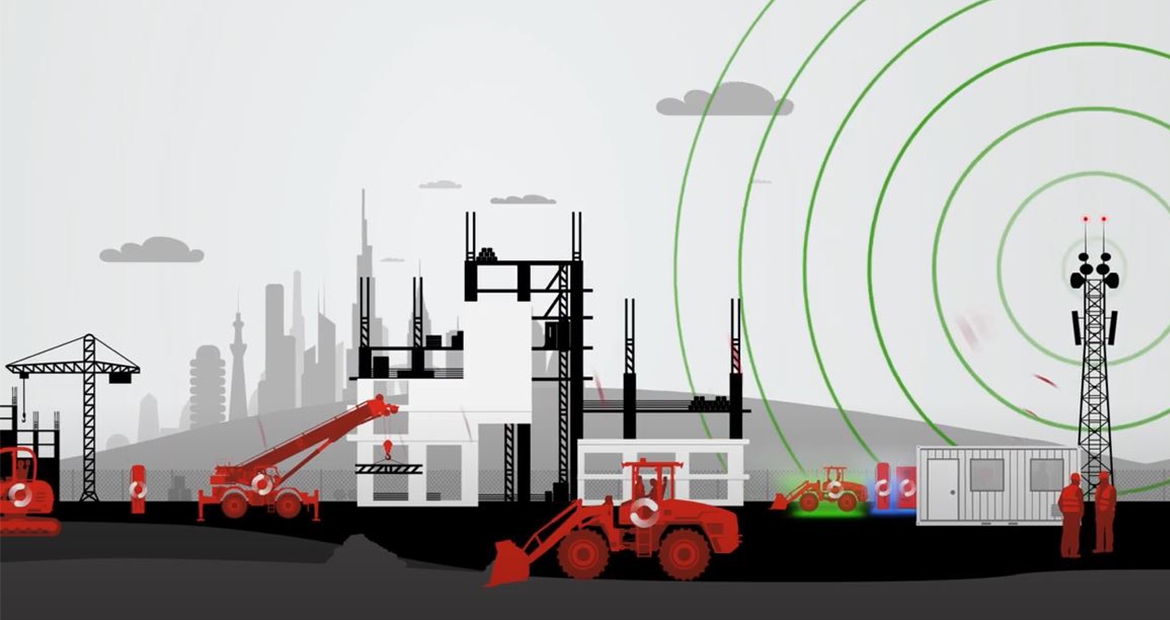How smart is the worksite of the future ?
By Cummins Inc., Global Power Technology Leader

The worksite of the future will see site managers using digital technologies as integrated components to drive business results, with the Internet-of-Things and machine learning becoming more than just buzz words.
In this post we'll explore how connectivity combined with intelligent site planning and the right equipment can improve productivity, while reducing costs and improving safety. We'll also explore why adoption of the latest technologies has been slower than expected and what the potential challenges site managers and industry leaders need to consider when designing their own infrastructure.
As the world transforms into a truly digital economy, strong and reliable connectivity will be paramount for the site managers to benefit from the many opportunities available to them. The good news is with Wi-Fi, cellular and satellite offerings, there are no shortage of options when it comes to selecting internet sources or telematics providers. Whether it's flying drones, remote diagnostics, virtual service events, autonomous operators or smart charging for electric equipment. Once connectivity is prioritized as a requirement of the worksite, a new way of working becomes possible.
For example, imagine the productivity you could achieve if equipment never failed while on a job because its engines were being monitored remotely through cloud computing systems that can detect issues early and send software updates (similar to your smart phone) to fix problems. Or, automatically trigger replacement part orders online so preventative maintenance could occur with minimal steps or time lag.
Alternatively, what if you knew exactly how much work you could get done with an electric machine before its battery needed charging and then you could plan your charges during downtime to not only save on utility costs but also ensure availability during regular work shifts? Similarly, how much risk could you mitigate if you utilized autonomous operators who directed equipment from computer rooms instead of working on site? The common thread here for these examples is connectivity.
With advanced hardware and sensors now being increasingly added to construction equipment- machines are in fact collecting data and learning the way sites work. These anonymous insights apply machine learning to help manufacturers design more and more advanced technologies. However, here within lies the heart of the challenge. Let's consider a simple example where a construction site has 12-pieces of equipment from 3 OEM brands.
Each brand could have its own telematics solution installed and ready, meaning that the site manager may need to monitor their mixed fleet through 3 different web portals. This could negate a notable amount of the expected efficiency gains. For machines without factory installed telematics solutions, external service providers can visit sites and add aftermarket hardware to upgrade equipment. This solution must of course pay for itself in the long run.
And then of course these new sets of technology do require new skills. This could mean upskilling current labor or hiring new talent. Data management will be one of the key skills, without it the amount of information could prove overwhelming.
While challenges do exist, Cummins is building open and agnostic technology solutions that are connectable with a range of telematics service providers and customer specific systems. As our powertrains are found in a wide variety of construction equipment, we are developing a suite of Connected Solutions™ to help support customers over the life of their equipment.
Learn more and join the conversation
Join the conversation with #Cummins on your social platforms or learn more about our current and future product solutions. We also have Cummins experts around the world happy to answer your questions. Find your nearest Cummins professional by visiting care.cummins.com or calling 1-800-Cummins.
Author Profiles

Cummins Inc., Global Power Technology Leader
Cummins Inc., a global power solutions leader, comprises five business segments - Components, Engine, Distribution, Power Systems, and Accelera by Cummins - supported by its global manufacturing and extensive service and support network, skilled workforce and vast technological expertise. Cummins is committed to its Destination Zero strategy - the company's commitment to sustainability and helping its customers successfully navigate the energy transition with its broad portfolio of products. Cummins has approximately 69,900 employees and earned $3.9 billion on sales of $34.1 billion in 2024. See how Cummins is leading the world toward a future of smarter, cleaner power at www.cummins.com.
Related Tags